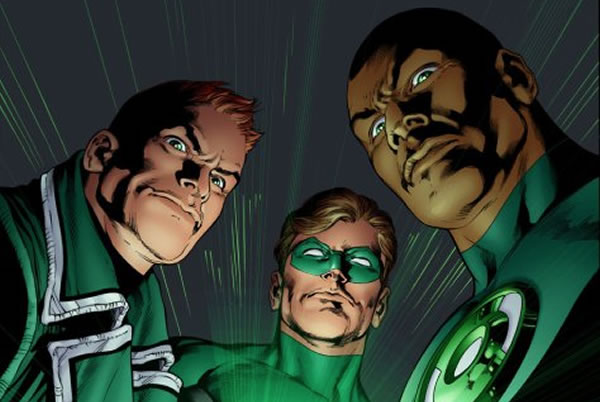![]()
A new study has revealed that little has changed in Tinseltown in terms of offering up more diverse casting choices. Despite the fact that Hispanics make up a huge amount of the paying public, and have shown strong enthusiasm towards spending their money supporting whatever blockbusters are released, Hispanics only accounted for 4.9% of the speaking roles in last year’s top 100 films. That figure is identical to what it was back in 2008- despite a strong surge in the Latino population here in the states.
Even when they do get roles, the women in particular are marginalized as eye candy. The study shows that Latinas are the highest-represented ethnicity when it comes to roles that feature some form of nudity.
![]()
“Part of the problem is conditioning. When you hear the names De Niro or Pacino, you automatically know it’s an American movie,” says actor Esai Morales. “But the minute you have a Nunez or a Vasquez as the lead, people wonder if it’s a foreign-language film with subtitles. That worries people,” he added. “It’s a mindset that’s very accepted in Hollywood. It’s about categories that are easily identified.”
While Morales, famous for roles in La Bamba and NYPD Blue, believes it’s a matter of audiences being conditioned to think certain films are strictly for Spanish-speaking audiences, another prevailing factor is that the roles Latinos portray in mainstream films are usually very stereotypical. “Hispanic women are always portrayed as hoochie mamas,” says senior buyer for a clothing company Maria Espin. “They’re stereo-typical prostitutes, drug addicts, cleaning ladies, maids, and I feel insulted most of the time.”
But the perceived problem may have a simpler solution, according Demian Bichir (Weeds, The Bridge). Bichir believes that if Hispanics want to be better represented in movies and on TV that they should vote with their wallets. While the Hispanic population is all too happy to throw money at anything from Marvel Studios, and blockbusters like Transformers: Age of Extinction- which rarely represent them- they tend to stay at home when Latino-centric films come out. Filmes like Bichir’s A Better Life, or Diego Luna’s Cesar Chavez.
“You would think that with Hispanics being so powerful in terms of spending that there would be a Latin superhero by now,” Bichir told the Daily News. “You’d think Marvel would say, ‘Super Charro is here! Come see him fight against the bad guys!’ But in terms of superheroes or spectacular films like ‘Transformers,” the Hispanic community already is packing the theaters, so it’s not necessary,” says the actor.
When I spoke to Diego Luna a few months back, he echoed that sentiment. In anticipation of the release of his biopic on Mexicanhistorical figure and civil rights activist Chavez, he told me that he hoped Hispanics would unite and speak with their dollars by seeing the film and letting Hollywood know that they want films that also represent their people, and their culture. Alas, that film barely grossed $5.5 million here in the states. And Bichir’s Better Life couldn’t even break even on its $10 million budget, earning less than $2 million.
![]()
The cold shoulder that Hispanics show films that are “about” them stands in stark contrast to African-Americans. When films come out that are marketed and blatantly target that demographic, it’s common for African-American audiences to turn out in droves. Even if the reviews stink, and even if the premise is totally “been there, done that,” many “black movies” do huge numbers.
When I chatted with Luna, he also pointed to the fact that despite being Hispanic- we don’t necessarily represent a unified front. “Instead of thinking of ourselves as all part of the same family, it’s like ‘I am Mexican. You are Puerto Rican. She is Argentinian,'” he told me. As long as we remain splintered like that, it’ll be tricky to make films that will get a unified “Latin Vote.” Morales agrees with this. “The African American experience is a unifying tale. No one was left out of that shared history with slavery,” Morales says. He also adds, “But when you see stories about Cesar Chavez or the Cuban Revolution, some Latinos feel left out. We’re not a homogenous community.”
So what’s the answer? Bichir seems to think that Latinos need to create meaningful opportunities for themselves, since it’s clear Hollywood doesn’t seem to think they have to. “I think the only way we can have more meaningful representation is to write those characters and produce those films. Then as an audience, we need to support them,” he says. But between the aforementioned two Latino films, as well as El Cantante– which was produced by Jennifer Lopez about salsa legend Hector Lavoe- and Paranormal Activity: The Marked Ones– the Latino spinoff that was the lowest grossing film in the hot Paranormal franchise- I’m not sure the answer is that simple.
MFR’s Take
Perhaps we’re struggling to find an “answer” for a question that doesn’t need to be asked, or seeking a solution for something that isn’t a crisis. My devil’s advocate look at all this is that- unlike other ethnic groups in this country that rally for equal representation- maybe we’re just…fine with the status quo. Maybe we, as a people, don’t feel the need to be catered to. Is it possible that we find it patronizing when a film comes out that is blatantly “a movie for you Spanish folks out there”? Maybe.
The reason I think that this crisis may only be a problem for a small, vocal minority within a minority, is because we show so much willingness to throw money and time at “white” movies yet can’t be bothered to passionately support Latino ones. If it were an extremely important, galvanizing movement we wanted to kickstart, a film like Cesar Chavez had everything going for it. A solid cast. A historical figure that changed the lives of countless thousands of Mexican Americans right here in California within the last 50 years. A well-known writer-director. A star in Michael Peña that has appeared in so many great movies, doing consistantly fantastic work.
Yet it barely moved the needle. It came and went.
So yes, Hollywood continues to under-represent us. Yes, we make up 16% (the largest group of any minority in this country) of the population. Yes, studies have shown that we have become the most important demographic in Hollywood since we buy 25% of the movie tickets being sold. And maybe, just maybe, that’s fine.
Not everything has to be a big socio-political issue. If we want to change it, we can. We can vote with our dollars. We can sign petitions. We can cause a big social media stink. But the question is: Do we actually care?
I know where I stand on this issue, and I do not pretend to represent anyone but myself. I know El Mayimbe will likely disagree with my stance on this issue. I’d love to hear what you, my readers, think.
I’ll leave you with this:
I think it’s cool that Oscar Isaac routinely snags roles that go against the Latino grain. I think it’s awesome when he lands roles in big projects. When he got cast in Star Wars: Episode VII, I did a little fist pump into the air. But his casting won’t be informing whether or not I see Episode VII. I’m seeing Star Wars because, well, it’s STAR WARS!
What about you? Where do you stand on this issue? Is it even an issue to you at all? Sound off below.
SOURCE: New York Daily News

 FOR FANBOYS, BY FANBOYS
Have you checked out LRM Online’s official podcasts and videos on The Genreverse Podcast Network? Available on YouTube and all your favorite podcast apps, This multimedia empire includes The Daily CoG, Breaking Geek Radio: The Podcast, GeekScholars Movie News, Anime-Versal Review Podcast, and our Star Wars dedicated podcast The Cantina. Check it out by listening on all your favorite podcast apps, or watching on YouTube!
Subscribe on: Apple Podcasts | Spotify | SoundCloud | Stitcher | Google Play
FOR FANBOYS, BY FANBOYS
Have you checked out LRM Online’s official podcasts and videos on The Genreverse Podcast Network? Available on YouTube and all your favorite podcast apps, This multimedia empire includes The Daily CoG, Breaking Geek Radio: The Podcast, GeekScholars Movie News, Anime-Versal Review Podcast, and our Star Wars dedicated podcast The Cantina. Check it out by listening on all your favorite podcast apps, or watching on YouTube!
Subscribe on: Apple Podcasts | Spotify | SoundCloud | Stitcher | Google Play



